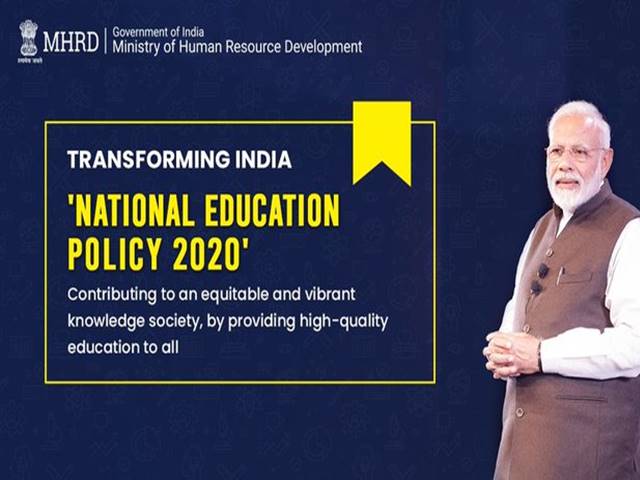The Union Cabinet approved reforms in National Education Policy of India on Wednesday, 20.07.2020.
After 34, this is the first reform we have seen in our educational policy. This poll was promised by BJP back in 2014. The pannel was headed by K. Kasturirangan who is the former Chief of ISRO. He submitted a draft in December 2018 which was made public for the feedbacks after the Lok Sabha elections back in May 2019.
In this, cabinet has introduced a four-year undergraduate degrees with multiple exit and entry options. This fourth year is dedicated especially for researches, which is optional for students and hence, results in abolition of the M.Phil degree.
This also results in establishing a common higher education regulator with properly fixed fees for both public and private institutions. This reform envisions the universalisation of early childhood from the age of 3 to 6. The new curriculum with good coding and vocational studies will be introduced from class 6. Students facing problem with the language that is, not being taught in mother tongue will get a relief as their mother tongue will now be used as the medium of instruction till class 5. Same will be followed by both public as well as the private institutions.
Language issues have lead to major outrages since original draft states that it is mandatory to teach Hindi to all the school students. However, this clause has been dropped now and the final policy document states that there will be greater flexibility. The three language formula will be offered at all levels of school and higher institutions, while foreign languages will be offered at secondary level.
Since education is a concurrent subject and many states have their own school boards, implementation of this decison is of utmost importance, according to the senior officials and said that state government has to come on boards as well.
Class 10 and 12 board examination will be made easier and there will be no cramming. For better test score competencies rather than memoriesed facts, students will be allowed to take an exam twice. The future redesigns in exam pattern can include modular or semester wise board exams or seperate exams for objective and subjective type questions. School governance is set to change with new guidelines and independent authority will regulate both private and public schools. A common higher education will also get new guidelines in entire sector except for legal and medical education. A guideline will also be setup for the fee fixation for private institutes.
Undergraduate education is to become more holistic and multi disciplinary.
Students who drop at earlier stages will receive lesser qualification. Academic banks will be setup for the transfer of credits between institutions. There will be new focus on technology in education system in the wake of COVID-19 pandemic and recommend the expansion of digital offerings for both schools and universities.





